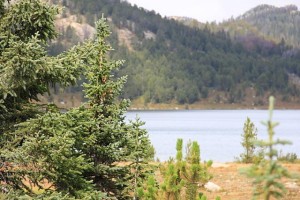Happy first day of spring! Why not celebrate with the latest issue of Forest Digest!
- The Quiet Plan to Sell Off America’s National Forests — ThinkProgress
This week, a proposal to seize and sell America’s national forests and public lands made its way into the U.S. House. This plan will suggest that public lands be transferred from the federal government to the states, which has many worried that states may raise taxes, open the land for drilling and mining, or sell the lands to private groups to cover the cost of management.

- This ecologist wants to plant a “pop-up” forest in Times Square — Grist
As part of a Kickstarter campaign, urban ecologist and botanist Marrielle Anzelone launched the idea to install a pop-up forest in Times Square that would include shipping containers full of trees, flowers and a wide variety of wildlife. This forest would stay in the city for three weeks before moving to a different city, giving people the opportunity to connect with nature in an urban setting.
- Amazon’s carbon uptake declines as trees die faster — Phys.org
After 30 years of research conducted in the South American rainforest, scientists have discovered that the amount of CO2 uptake by the Amazon has more than halved since its peak of 2 billion tons in the 1990s. This dramatic decrease has been caused by increased photosynthesis rates, which has caused the trees to grow quicker and die younger.
- Forest managers hindered in efforts to use prescribed burns to control costly wildfires — Phys.org
Prescribed burns are known to help restore unhealthy ecosystems, stop the spread of insects and diseases and reduce the severity of wildfires, but forest managers and private land holders have recently been stalled from performing this type of forest management. This could mean more risk to public safety and higher government spending on wildfire management, which is already around $2 billion.
- Cascades study may rewrite the textbook on forest growth and death — Oregon State University
Two professors from Oregon State University conducted a 10-year study focusing on biomass growth in three Douglas-fir stands in the Willamette National Forest. They found that biomass had been accumulating steadily for the past 150 years, which is not sustainable and could lead to problems later on.
- Let the kids play: Nature can take it — Tree Hugger
Kids can be hard on the forest ecosystem, but this is not necessarily a bad thing. The kids that grow up making forts, picking flowers, entrapping animals and using nature in their games will feel more at ease in the wild and a stronger desire to protect it once they are older, leading to better conservation measures in the future.
- New Forests and Round Valley Indian Tribes register first forest carbon offset project — Lesprom Network
According to the California Air Resources Board, more than 540,000 ARB offset credits are available in the California carbon market thanks to the New Forests and Round Valley Indian Tribes. This project ensures the maintenance of more than 5,500 acres of Douglas-fir and mixed hardwood forests on the reservation.